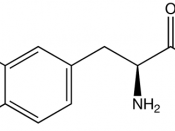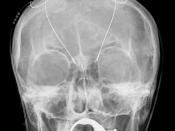Discuss current treatment strategies for Parkinson's disease. How can the patient's quality of life be preserved? Are costs to the community of developing these new treatment strategies justified? Justify your answer.
Parkinson's is a neurodegenerative disease, which is caused by a loss of dopamine producing cells in the brain . The disease is progressive and debilitating and is outwardly manifested in tremors, stiffness and rigidity, bradykinesia and postural instability. The disease affects everyone differently, that is, these symptoms are covered to a different extent for each sufferer and as such treatment of the disease is highly individualised. There is no current cure for Parkinson's disease and most of the management of the disease involves the treatment of symptoms and the reduction of the side effects of current drug treatments.
Currently quality of life in Parkinson's patients involves finely balancing medication with side effects to maintain functionality. This is so, where patients have a cyclical experience, undergoing periods of reduced movement, stiffness (akinesia) before drug treatment and dyskinesias & other side effects after treatment, with limited time in between where they experience normal movement.
Current Treatment Strategies for Parkinson's Disease.
DRUG TREATMENTS
Dopamine:
Since dopamine itself cannot pass through the blood-brain barrier, the introduction of additional dopamine neurotransmitter into the bloodstream isn't an idyllic treatment. The current leading drug for the treatment of PD symptoms is Levodopa (or L-dopa), which although itself passes through the blood-brain barrier, transforms to dopamine quickly before reaching the brain. Consequently large amounts need to be taken, which is particularly detrimental when it is noted that it has significant side effects such as severe nausea, dizziness, possible liver damage and dyskinesias. The side effects of Levodopa can however, be mitigated by a major drug used in conjunction with it called Carbidopa. Carbidopa delays the conversion...


